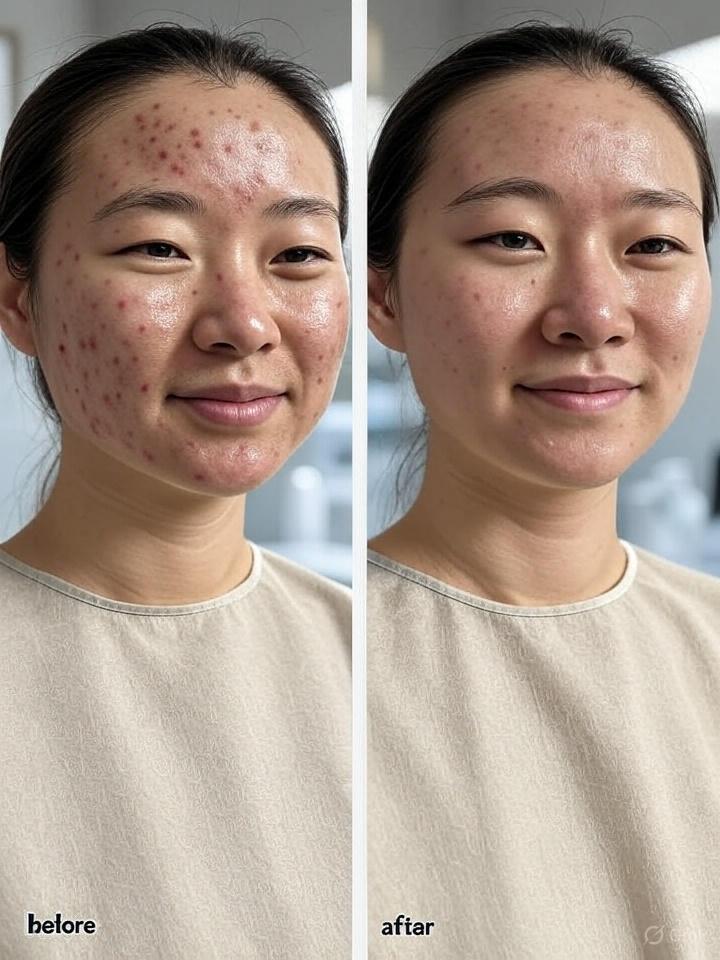If you have oily, acne-prone skin, choosing the right skincare products can be a bit of a challenge. While it’s essential to hydrate and nourish your skin, it’s equally important to avoid ingredients that could make acne worse or trigger breakouts. Some ingredients can clog pores, irritate the skin, or increase oil production, leading to more frequent breakouts. In this guide, we’ll walk you through some of the key ingredients you should steer clear of if you have oily, acne-prone skin.
1. Comedogenic Oils
Oils are often seen as a no-go for oily, acne-prone skin. While some oils are beneficial, others, especially comedogenic oils, can clog pores and contribute to breakouts. Comedogenic oils are those that have the potential to cause blackheads and acne by blocking your pores. Some common comedogenic oils include:
- Coconut oil
- Palm oil
- Wheat germ oil
Instead of these, opt for non-comedogenic oils, such as argan oil or grapeseed oil, which are lighter and less likely to clog pores.
2. Alcohol-Based Ingredients
Alcohols like isopropyl alcohol and ethanol are commonly used in skincare for their quick-drying properties and ability to cut through oil. However, these alcohols can be too harsh for oily, acne-prone skin. They strip away natural oils, leaving your skin feeling tight and dry. In response, your skin may overproduce oil to compensate for the dryness, which can worsen acne over time.
Instead of these harsh alcohols, look for fatty alcohols, like cetyl alcohol or stearyl alcohol, which are much gentler on the skin and won’t cause excessive dryness.
3. Fragrances and Artificial Scents
Fragrances in skincare products can be highly irritating, especially for sensitive skin. If you have acne-prone skin, adding unnecessary fragrances can lead to inflammation and breakouts. These artificial scents can clog pores and aggravate the skin, making acne worse. It's best to choose products labeled fragrance-free or unscented to avoid this issue.
4. Sodium Lauryl Sulfate (SLS)
Sodium Lauryl Sulfate (SLS) is a surfactant found in many cleansers, shampoos, and body washes. While it’s great at creating a rich lather, SLS can be harsh on your skin, especially if it’s already oily and acne-prone. SLS can strip the skin of its natural oils, leading to dryness, irritation, and even an increase in oil production. This overproduction of oil can potentially cause more breakouts.
Instead of products containing SLS, look for gentle, sulfate-free cleansers that clean your skin without being too abrasive.
5. Silicones
Ingredients like dimethicone, cyclopentasiloxane, and cyclohexasiloxane are types of silicones often found in moisturizers, primers, and foundations. While silicones can create a smooth, poreless finish on the skin, they can also trap oil, sweat, and bacteria in your pores. This can lead to clogged pores, causing acne flare-ups.
Instead of silicones, choose products with water-based formulas or those with ingredients like hyaluronic acid, which hydrate the skin without contributing to breakouts.
6. Artificial Dyes and Colorants
Artificial dyes and colorants are often added to skincare products to enhance their appearance. While they don’t directly cause acne, they can irritate the skin and increase inflammation, leading to more breakouts. Look for products that are dye-free or those with natural colorants, like beet juice or green tea extract.
7. Heavy Waxes and Butters
While shea butter and cocoa butter are often celebrated for their moisturizing properties, they can be too heavy for oily and acne-prone skin. These ingredients can easily clog pores and lead to breakouts if they’re not used in moderation. If you have oily, acne-prone skin, it’s best to avoid products that contain large amounts of heavy butters and waxes.
Instead, look for lightweight moisturizers with water-based or gel formulations that provide hydration without feeling greasy.
8. Synthetic Preservatives
Preservatives like parabens, phenoxyethanol, and formaldehyde-releasing preservatives are commonly found in skincare products to prolong shelf life. However, these chemicals can irritate sensitive skin, and their presence in skincare products can make acne worse, especially for those with oily, acne-prone skin.
Opt for paraben-free products or those with natural preservatives like rosemary extract or grapefruit seed extract, which are gentler on the skin.
Final Thoughts
If you have oily, acne-prone skin, selecting the right skincare ingredients can make all the difference. Avoiding comedogenic oils, alcohol-based ingredients, and harsh preservatives will help reduce the likelihood of breakouts and keep your skin looking fresh and clear. Instead, opt for products that are gentle, non-comedogenic, and designed to balance oil production without over-drying or irritating your skin.
Remember, every skin type is unique, so it may take some trial and error to find the perfect routine for your skin. When in doubt, consult with a dermatologist to find products that will help you manage oily, acne-prone skin while promoting overall skin health. learn more here - https://uk.mederbeauty.com/collections/oily-skin-and-acne



